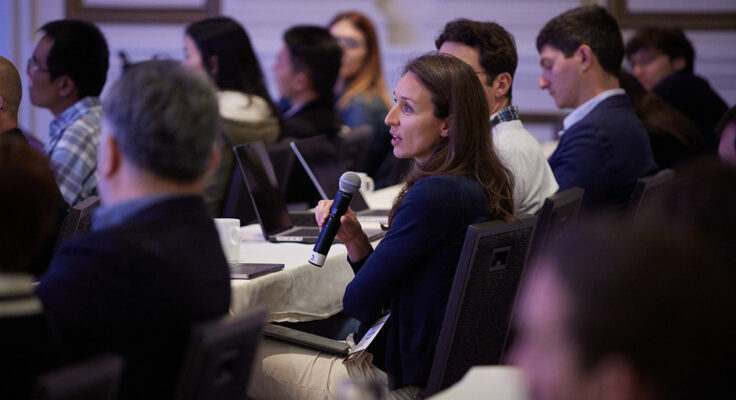The Kenneth Rainin Foundation’s 2024 Innovations Symposium returned to San Francisco in July to advance collaborative solutions to Inflammatory Bowel Disease (IBD). The annual event drew 160 researchers, clinicians and industry professionals, including members of the Foundation’s Scientific Advisory Board, for two days of exchanging ideas and networking. This year’s gathering was marked by fresh insights, cutting-edge ideas and inspiring messages to accelerate improvements to patient health and well-being.
A Powerful Call To Action
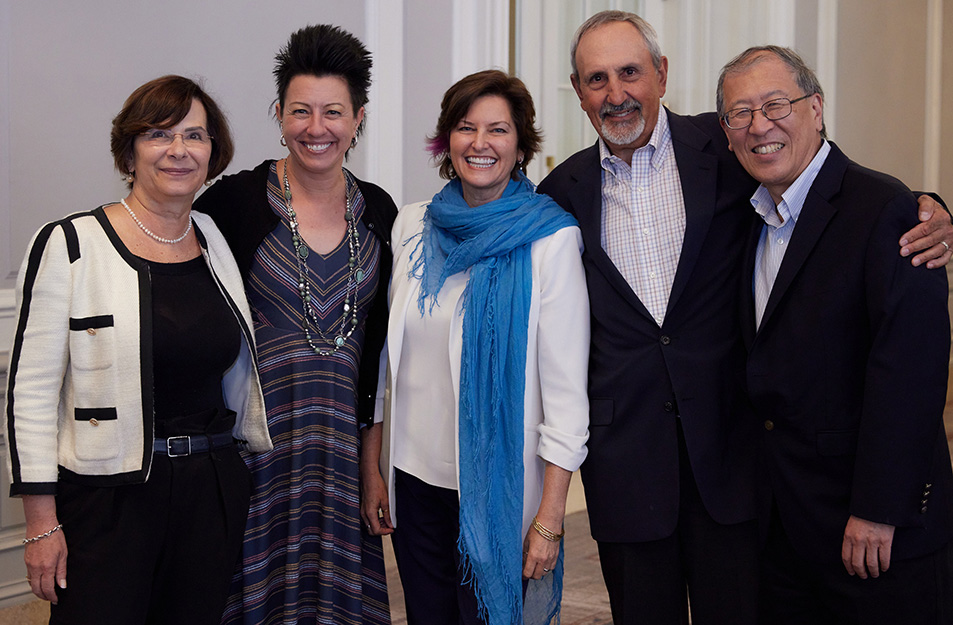
Attendees were welcomed by a moving call to action from Foundation CEO, Jen Rainin, PhD. She has never shied away from being transparent about the impact of living with ulcerative colitis on her own life. This year, she shared more about how her father Kenneth Rainin struggled with the disease. She spoke openly about the lack of effective treatments and the sense of shame it engendered during his lifetime. She made the sobering observation that little has changed in treatments in the past 17 years, which powered her call for bolder ideas.
“I’m counting on the scientists in this room to ask the right questions and find better answers for all of us suffering from this disease. I am increasingly optimistic that what you’re all working on will contribute to better treatments and ultimately a cure for IBD.”
Jen Rainin, PhD, CEO
Highlighting Prevention And “Top-Down” Therapies
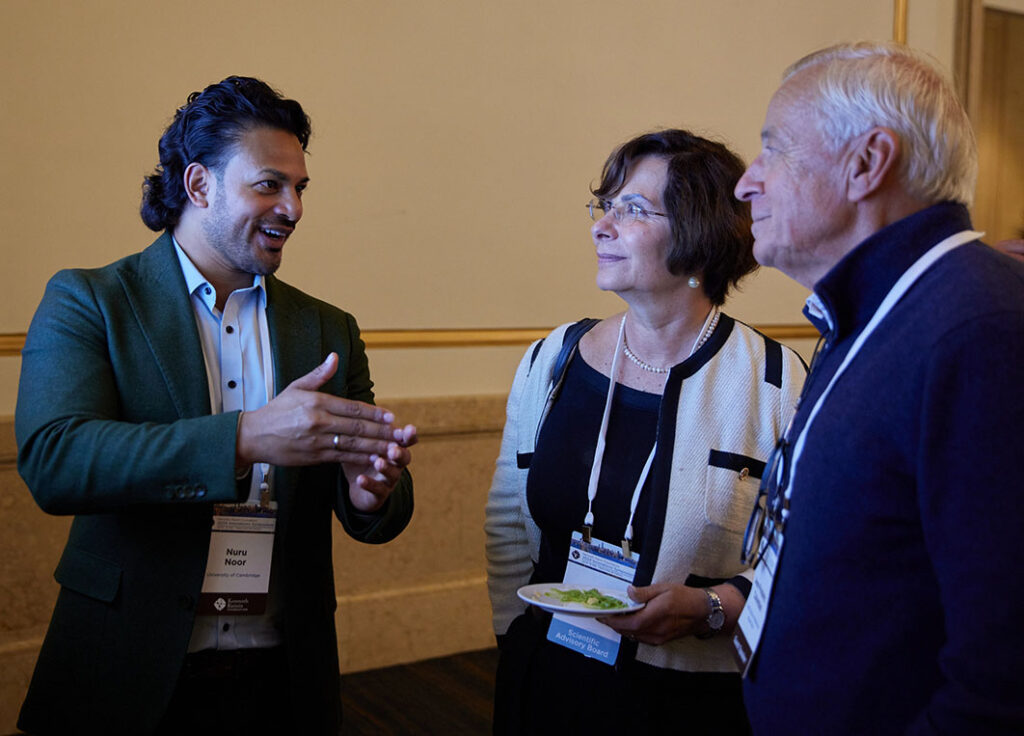
Setting the stage each day was a presentation by a gastroenterologist, whose research and clinical findings informed their emphasis on focusing earlier in the disease process to benefit patients. Jean-Frederic Colombel, MD, a Professor at Icahn School of Medicine at Mt. Sinai, investigates disease precursors toward predicting and preventing IBD. Drawing on decades of patient data in France and the US, he stressed the need for preventive treatments for people at high risk of developing IBD.
Charlie Lees, PhD, is a Professor at University of Edinburgh and a Consultant Gastroenterologist at Western General Hospital. His presentation on dynamic biomarker modelling to predict IBD outcomes framed his case for “top-down” therapies, an approach that treats patients early and aggressively with multiple medications. Dr. Lees’ message was echoed in a poster presentation by Dr. Nurulamin Noor from the University of Cambridge. His study found a longer-term impact on remission and multiple other benefits when newly diagnosed Crohn’s disease patients received “top-down” therapy using the drug infliximab.
“An important backdrop of these presentations was the need to ask different questions to inform how we target a very complex disease. The call to action was clear. We must do more, and do it sooner, to advance solutions treating and preventing IBD.”
Laura Wilson, PhD, Director, Health Strategy & Ventures
Targeting New Therapeutic Strategies
Translational research by other presenters highlighted their search for greater understanding and more targeted therapies for IBD:
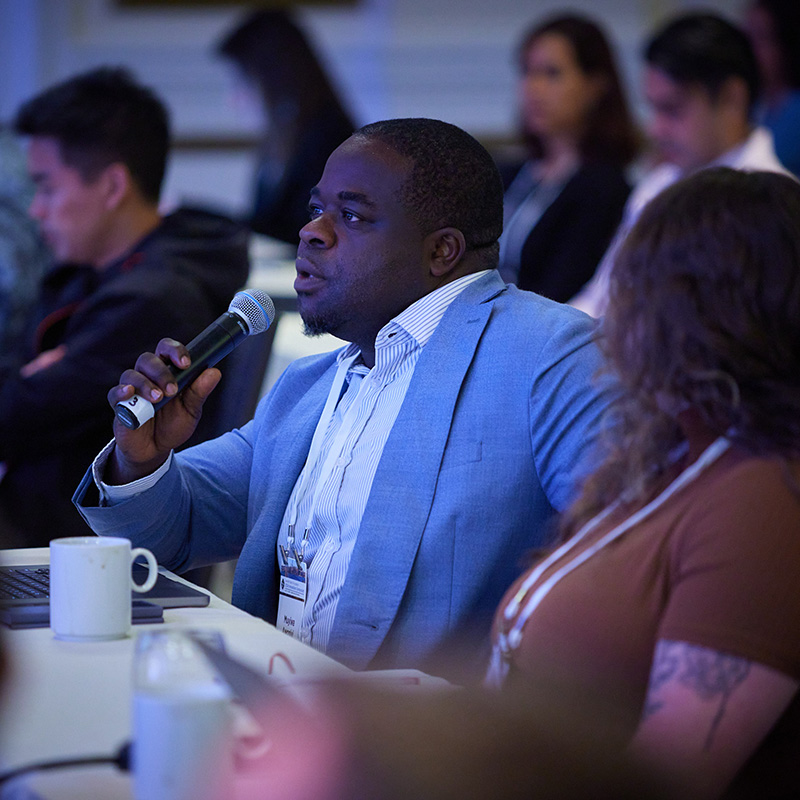
- Meenakshi Rao, MD, PhD, Assistant Professor, Boston Children’s Hospital and Harvard Medical School, highlighted the gut-brain axis and the emerging science of the enteric nervous system as a central regulator of digestive health and disease.
- Andreas Bäumler, PhD, Professor, University of California, Davis, uncovered mechanisms driving compositional changes in gut-associated microbial communities during infection. He presented findings on how the depletion of butyrate-producing Clostridia in the gut can trigger osmotic stress and exacerbate inflammation in non-IBD patients.
- Bana Jabri, MD, PhD, Professor, The University of Chicago, is also a Co-Chair of the Foundation’s Scientific Advisory Board. Her presentation reinforced the kinetics of IBD, exploring the migration of immune cells over time in host-commensal interactions and immunopathology.
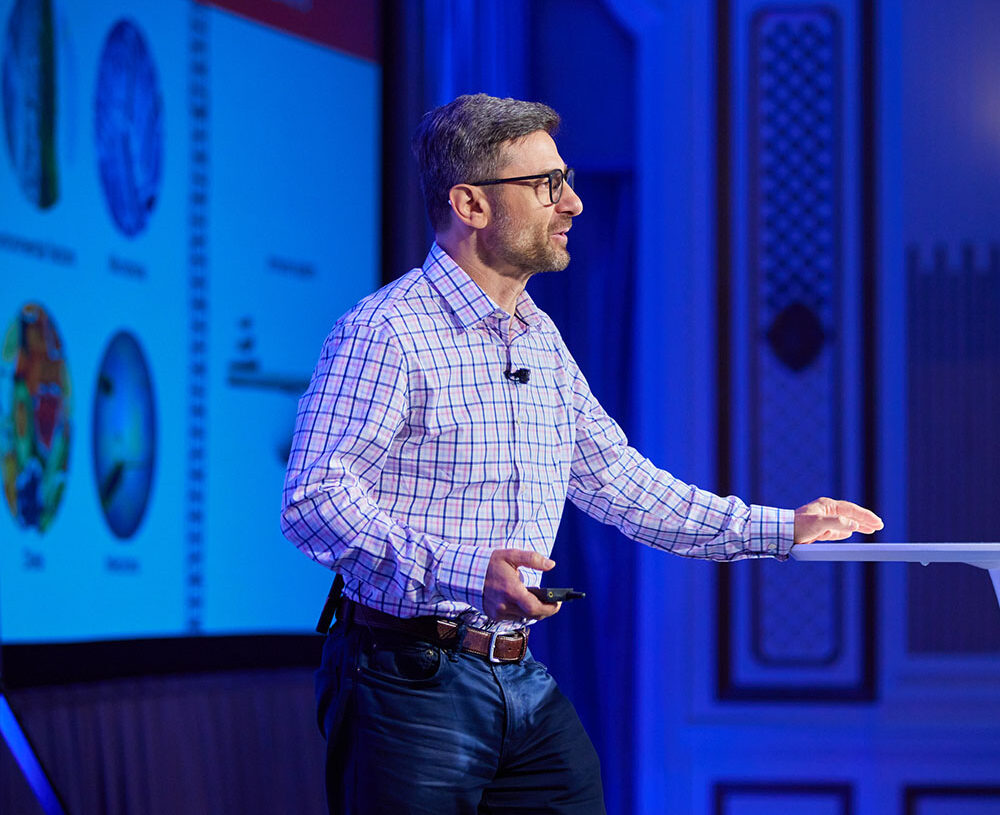
Two other presenters received early-stage funding from the Rainin Foundation for their novel research, which continues to advance the field to this day:
- Gwendalyn Randolph, PhD, Professor, Washington University in St. Louis, is a leading expert in macrophages and lymphatic vasculature. Her presentation considered how lymphatic and venous outflow from the intestine influence inflammation in IBD.
- Iliyan Iliev, PhD, Associate Professor, Weill Cornell Medicine, investigates the role of the fungal communities in mucosal immunity. His talk addressed fungal determinants of intestinal inflammation.
A New Generation Of Innovators
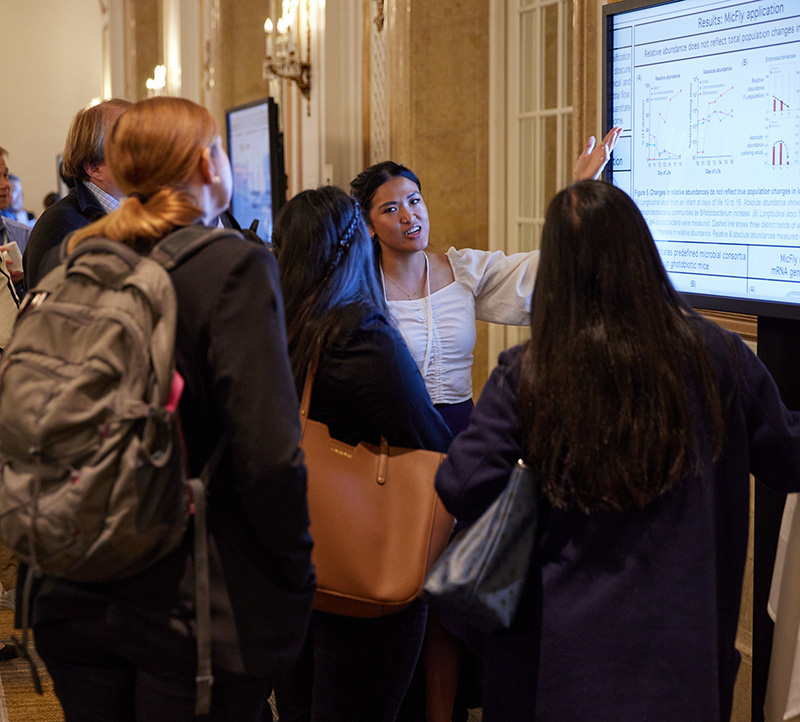
Our Innovations Symposium is a key strategy in our work to advance the field by supporting the next generation of scientists. This year, more than one-third of the Symposium attendees were graduate students and postdocs. An additional 26% of attendees identified as early career scientists, including 18 finalists of the Foundation’s Early Career Catalyst Award. This one-time award commemorates the Foundation’s 15th anniversary of formal grantmaking by supporting two early career investigators whose research has the potential to improve the lives of people living with IBD.
The Symposium’s design enables investigators at all career levels to learn from leaders in the field. Poster sessions are a popular networking feature at the Symposium and another opportunity to elevate the work of up-and-coming researchers. Of the 30 posters featured, nine students and postdocs received travel awards to support their attendance at the event. This year also marked the return of poster presentation lightning rounds on the main stage, which provided additional visibility to five emerging scientists who are finding new inroads to improving patients’ lives.
Advances Across An Array Of Cutting-Edge Research
Symposium speakers presented recent progress on their cutting-edge research:
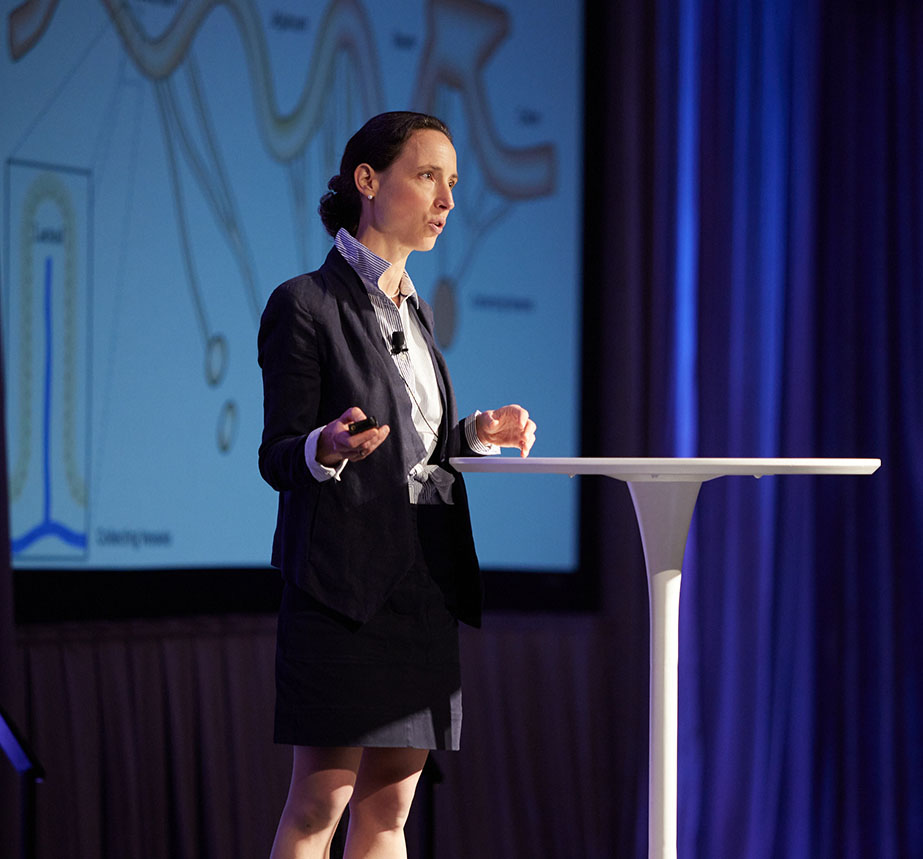
- Greg Barton, PhD, Professor, University of California, Berkeley, Tracking host responses to the microbiota
- Andreas Bäumler, PhD, Professor, University of California, Davis, Low Clostridia abundance triggers osmotic stress to exacerbate inflammation
- Ilana Brito, PhD, Associate Professor, Cornell University, Host-microbiome protein-protein interactions and their relevance to IBD
- Jean-Frederic Colombel, MD, Professor, Icahn School of Medicine at Mt. Sinai, Can we predict and prevent IBD?
- Daria Esterházy, PhD, Assistant Professor, The University of Chicago, Niche specific functions of the lymphatics along the gut
- Michael Fischbach, PhD, Professor, Stanford University, Understanding and manipulating immune modulation by the microbiome
- Andrew Goodman, PhD, CNH Long Professor and Chair, Department of Microbial Pathogenesis; Director, Microbial Sciences Institute, Yale University; Microbiome dynamics during inflammation
- Karen Guillemin, PhD, Philip H. Knight Chair and Professor of Biology, University of Oregon, Teaming with microbes: partnering with the microbiota for gut health
- Iliyan Iliev, PhD, Associate Professor, Weill Cornell Medicine, Fungal determinants of intestinal inflammation
- Bana Jabri, MD, PhD, Professor, The University of Chicago, Host-commensal interactions and Immunopathology
- Kate Jeffrey, PhD, Vice President of Immune Therapeutics, Moderna, mRNA: a new era in vaccines and therapeutics
- Michael Kattah, MD, PhD, Assistant Professor, University of California, San Francisco, Dissecting epithelial, stromal and myeloid networks in colitis using spatial multi-omics
- Charlie Lees, PhD, Professor, University of Edinburgh; Consultant Gastroenterologist, Western General Hospital, Dynamic biomarker modelling to predict IBD outcomes
- Gwendalyn Randolph, PhD, Professor, Washington University in St. Louis, Lymphatic and venous outflow from the intestine in IBD
- Meenakshi Rao, MD, PhD, Assistant Professor, Boston Children’s Hospital and Harvard Medical School, The “brain” in the gut: a central regulator of digestive health and disease
- Peter Turnbaugh, PhD, Professor, University of California, San Francisco, Gut microbial metabolism modifies IBD severity and treatment
Save The Date For The 2025 Innovations Symposium
Join us on July 18-20, 2025, at Turtle Bay in Oʻahu, Hawaiʻi, to hear the latest in Inflammatory Bowel Disease research and connect with scientists from around the world. Stay tuned via our newsletter and follow us on X (formerly Twitter) for the latest information.
